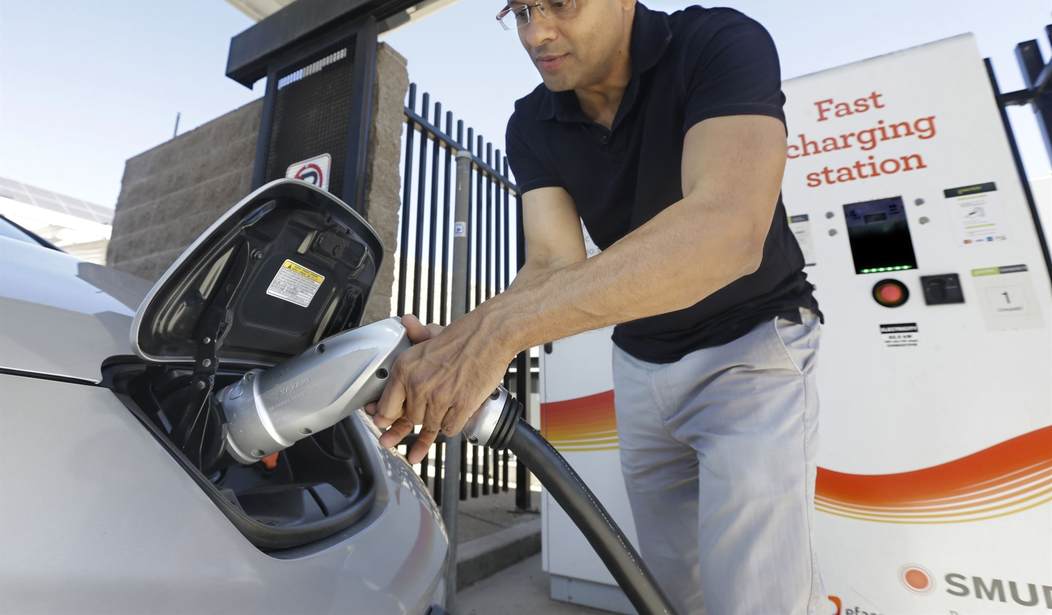Honda recently announced that they would halt production of its Clarity Electric vehicle because of poor sales. BMW has decided not to launch its first long-range electric vehicle in the U.S., despite the country having the second-largest market for automobiles in the world. Regardless of Americans' appetite for electric vehicles (EV), most electric cars not named Tesla have struggled to break through. But we could address this issue by promoting free market solutions that create EV charging stations.
According to an AAA survey, concerns regarding the ability to charge the vehicle is a major issue discouraging consumers from purchasing EVs, with six in 10 of those surveyed stating this uncertainty is the reason they are unlikely to buy an EV. Although 63 percent of prospective car buyers report interest in purchasing an EV, many will choose not to do so simply because there aren’t enough charging stations.
Thankfully, Congress has the opportunity to take a step in the right direction to address consumers’ concerns. The House Select Committee on the Climate Crisis, led by Congresswoman Kathy Castor (D-FL) and Congressman Garret Graves (R-LA), is putting together a report with public policy recommendations to reduce carbon emissions, and free market principles that support EV infrastructure should be a key part of this discussion.
When deciding which EV infrastructure policy to promote, members of the committee can look to the different ways state and local governments have encouraged the development of charging stations.
Some states, like New Jersey, have offered incentives to those who build EV charging stations. In Chicago, they have made the permitting process easier to encourage the installation of chargers.
Other states, unfortunately, have taken a staunchly anti-free market approach to promoting EV infrastructure, the result of which will be less charging stations - and therefore less EVs purchased.
Recommended
Utility companies across the country have been requesting to raise their rates on all of their customers in order to build charging stations.
Not only would this increase the electric bills of all of their customers, it would also chase away private sector competition, which won’t be able to compete with companies that are passing deployment costs onto customers who are already forced to use their services. This will all mean higher prices for consumers and fewer charging stations.
Surprisingly, public utility commissions are actually approving astronomical rate increases on customers to help utility companies fund construction of EV infrastructure. Southern California Edison and the Pacific Gas and Electric Company (PG&E) will spend up to $343 million and $236 million on EV infrastructure respectively, all of which was approved by California’s Public Utilities Commission.
If the goal is to get the most number of charging stations on the road so Americans can confidently begin purchasing EVs like they would like to, a much better approach would be to support competition by reducing policies that distort the free market. The private sector stands ready to adapt to the changing marketplace and is eager to compete for new EV customers. But if states and localities chose the “utility model” that allows costs to be passed on to utility customers, it will discourage private sector investment that would be necessary to establish a nationwide EV charging network.
Americans want to buy EVs, but the lack of critical infrastructure is preventing many from transitioning. We are counting on our lawmakers, particularly members of the House Select Committee on the Climate Crisis, to promote commonsense, effective solutions to help the EV market take shape. History has proven that the best way to do this is to support free market competition, which will increase the quantity and quality of EV charging options at the lowest possible price for consumers.

























Join the conversation as a VIP Member